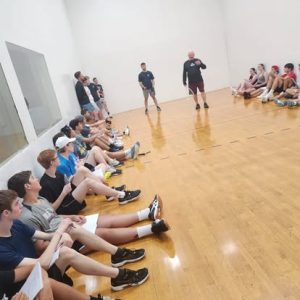
Ten signs you “may” have hired a great coach. Since the coaching field is becoming so crowded, I think the public needs to know that all coaches are not equal. Since coaching is so objective and in the eye of the beholder, here are ten general signs of a good coach.
1. They charge money for their services. Why is this a sign of a good coach? Demand is high, time is premium, so the coach charges for their time.
2. The Coach is producing winners. This should be #1-anyone who works with this coach improves-and the word gets out!
3. The coach does not recruit. There are only a few who fall into this category,
unfortunately. Remember, a coach who needs you is not a good coach. A coach whom you need is a good coach.
4. The coach has taken a beginner, at zero, and built a world champion or national champion in the open division and beyond. (sorry but the coach of the 8 and under world champ does not count on this one) There are only a handful of coaches who have ever done this. To my knowledge the list gets very short after five “from zero to open” players.
5. The coach keeps changing as the game changes and does not teach the way they played. Big one here; many folks are stuck in the 80s and 90s. New century, new science, new technique!
6. Coach can talk ball with tennis, golf, top personal trainers, and professional athletes. This takes sports experience, not racquetball experience.
7. Coach keeps up with latest sports science. To my knowledge there are only two coaches who ever had a bio mechanics expert look at what they were teaching. One is yours truly and the other was Dave Peck. We teach almost the same technique. We got the blessing from the experts.
8. Coach goes out of his or her way to congratulate opponents and not make competition personal.
9. Coach is not married to a system and can be flexible. This means adapting to what an athlete can do, not what a coach wants her or him to do.
10. Coach has an open mind and listens to their athlete. Coaching is sharing information and the best coaches employ a two way street of communication with their athletes. The coach is not on the court competing, the athlete is.
My advice to young coaches is to take a long hard look at 1-10 above, and go for it!
